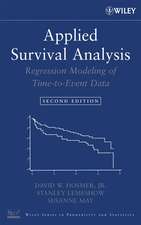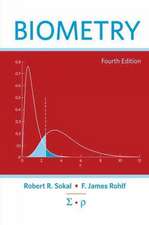Inclusion: The Politics of Difference in Medical Research: Chicago Studies in Practices of Meaning
Autor Steven Epsteinen Limba Engleză Paperback – apr 2009
With Inclusion, Steven Epstein argues that strategies to achieve diversity in medical research mask deeper problems, ones that might require a different approach and different solutions.
Formal concern with this issue, Epstein shows, is a fairly recent phenomenon. Until the mid-1980s, scientists often studied groups of white, middle-aged men—and assumed that conclusions drawn from studying them would apply to the rest of the population. But struggles involving advocacy groups, experts, and Congress led to reforms that forced researchers to diversify the population from which they drew for clinical research. While the prominence of these inclusive practices has offered hope to traditionally underserved groups, Epstein argues that it has drawn attention away from the tremendous inequalities in health that are rooted not in biology but in society.
“Epstein’s use of theory to demonstrate how public policies in the health profession are shaped makes this book relevant for many academic disciplines. . . . Highly recommended.”—Choice
“A masterful comprehensive overview of a wide terrain.”—Troy Duster, Biosocieties
Formal concern with this issue, Epstein shows, is a fairly recent phenomenon. Until the mid-1980s, scientists often studied groups of white, middle-aged men—and assumed that conclusions drawn from studying them would apply to the rest of the population. But struggles involving advocacy groups, experts, and Congress led to reforms that forced researchers to diversify the population from which they drew for clinical research. While the prominence of these inclusive practices has offered hope to traditionally underserved groups, Epstein argues that it has drawn attention away from the tremendous inequalities in health that are rooted not in biology but in society.
“Epstein’s use of theory to demonstrate how public policies in the health profession are shaped makes this book relevant for many academic disciplines. . . . Highly recommended.”—Choice
“A masterful comprehensive overview of a wide terrain.”—Troy Duster, Biosocieties
Din seria Chicago Studies in Practices of Meaning
-
 Preț: 231.82 lei
Preț: 231.82 lei -
 Preț: 282.53 lei
Preț: 282.53 lei -
 Preț: 200.26 lei
Preț: 200.26 lei -
 Preț: 183.60 lei
Preț: 183.60 lei -
 Preț: 236.64 lei
Preț: 236.64 lei -
 Preț: 237.74 lei
Preț: 237.74 lei -
 Preț: 229.35 lei
Preț: 229.35 lei -
 Preț: 217.71 lei
Preț: 217.71 lei -
 Preț: 260.44 lei
Preț: 260.44 lei -
 Preț: 268.20 lei
Preț: 268.20 lei -
 Preț: 246.07 lei
Preț: 246.07 lei -
 Preț: 284.66 lei
Preț: 284.66 lei -
 Preț: 230.16 lei
Preț: 230.16 lei -
 Preț: 292.28 lei
Preț: 292.28 lei -
 Preț: 403.00 lei
Preț: 403.00 lei - 23%
 Preț: 669.93 lei
Preț: 669.93 lei -
 Preț: 242.40 lei
Preț: 242.40 lei -
 Preț: 392.77 lei
Preț: 392.77 lei - 15%
 Preț: 195.04 lei
Preț: 195.04 lei - 9%
 Preț: 287.12 lei
Preț: 287.12 lei - 17%
 Preț: 166.70 lei
Preț: 166.70 lei - 14%
 Preț: 199.02 lei
Preț: 199.02 lei - 18%
 Preț: 178.07 lei
Preț: 178.07 lei - 19%
 Preț: 148.73 lei
Preț: 148.73 lei - 22%
 Preț: 433.25 lei
Preț: 433.25 lei - 18%
 Preț: 152.10 lei
Preț: 152.10 lei
Preț: 186.32 lei
Nou
Puncte Express: 279
Preț estimativ în valută:
35.66€ • 37.09$ • 29.44£
35.66€ • 37.09$ • 29.44£
Carte disponibilă
Livrare economică 22 martie-05 aprilie
Livrare express 11-15 martie pentru 29.87 lei
Preluare comenzi: 021 569.72.76
Specificații
ISBN-13: 9780226213101
ISBN-10: 0226213102
Pagini: 432
Ilustrații: 2 line drawings
Dimensiuni: 152 x 229 x 28 mm
Greutate: 0.52 kg
Editura: University of Chicago Press
Colecția University of Chicago Press
Seria Chicago Studies in Practices of Meaning
ISBN-10: 0226213102
Pagini: 432
Ilustrații: 2 line drawings
Dimensiuni: 152 x 229 x 28 mm
Greutate: 0.52 kg
Editura: University of Chicago Press
Colecția University of Chicago Press
Seria Chicago Studies in Practices of Meaning
Notă biografică
Steven Epstein is professor of sociology and director of the Science Studies Program at the University of California, San Diego. He is the author of Impure Science: AIDS, Activism, and the Politics of Knowledge and coauthor of Learning by Heart: AIDS and Schoolchildren in America's Communities.
Cuprins
Acknowledgments
List of Abbreviations
Introduction: Health Research and the Remaking of Common Sense
1 How to Study a Biopolitical Paradigm
2 Histories of the Human Subject
3 The Rise of Resistance: Framing the Critique of the Standard Human
4 The Path to Reform: Aligning Categories, Targeting the State
5 Opposition to Reform: Controversy, Closure, and Boundary Work
6 Formalizing the New Regime
7 From the Standard Human to Niche Standardization
8 Counts and Consequences: Monitoring Compliance
9 The Science of Recruitmentology and the Politics of Trust
10 To Profile or Not to Profile: What Difference Does Race Make?
11 Sex Differences and the New Politics of Women’s Health
12 Whither the Paradigm?
Conclusion: Identity, Difference, Disparities, and Biopolitical Citizenship
Chronology
Interviews
Notes
Index
List of Abbreviations
Introduction: Health Research and the Remaking of Common Sense
1 How to Study a Biopolitical Paradigm
2 Histories of the Human Subject
3 The Rise of Resistance: Framing the Critique of the Standard Human
4 The Path to Reform: Aligning Categories, Targeting the State
5 Opposition to Reform: Controversy, Closure, and Boundary Work
6 Formalizing the New Regime
7 From the Standard Human to Niche Standardization
8 Counts and Consequences: Monitoring Compliance
9 The Science of Recruitmentology and the Politics of Trust
10 To Profile or Not to Profile: What Difference Does Race Make?
11 Sex Differences and the New Politics of Women’s Health
12 Whither the Paradigm?
Conclusion: Identity, Difference, Disparities, and Biopolitical Citizenship
Chronology
Interviews
Notes
Index
Recenzii
“In this fascinating book, Steven Epstein explains how beginning in the 1980s a variety of social movements prevailed in changing inclusion criteria of unrepresented research subjects in clinical trials in the United States. In a relatively short period of time, medical researchers were expected to include more women, racial and ethnic minorities, children, and elderly as research subjects. Epstein pays close attention to the historical precedents of the arguments used in favor and against this change in thinking about what kind of differences matter in biomedical research, its consequences for research, and its far-reaching implications for identity politics. The result is a convincing, widely-accessible, and well-written account of the legal, political, social, and scientific aspects of this change in policy and thinking.”--Stefan Timmermans, author of Postmortem
“This ‘recovering’ politician has many scars from fighting the National Institutes of Health (NIH) to get them to abandon their one size fits all/white males only research policy. Steven Epstein's book is a must read now that progressives won and inclusion is the new NIH research model. Inclusion has found many differences between people based on age, gender, race and other categories, but Epstein's book reminds us some of these differences could be caused by socioeconomic conditions. Citizens need to discern differences that are genetic and those driven by economic status, so politicians cannot use those differences to reinforce stereotypes they wish to create. Hurrah for a book that's not afraid to wade out there and clear the mines out of the field! That's what Epstein does.”
“Steven Epstein masterfully weaves together sociologies of science, policy, social movements, and stratification to provide a cogent—and very readable—analysis of inclusion and difference as they have played out in biomedicine and politics. He deftly traces the emergence and implementation of the sex/gender, race, and age inclusion policies of the federal government’s health research apparatus. In doing so, Epstein identifies some of the ironic consequences of the contemporary focus on difference—for example, how attempts to address disadvantage and exclusion of vulnerable groups end up exacerbating stigma or discrimination against them. As such, his book makes an important contribution to knowledge about the interworkings of science, state, and society.”<Judith Auerbach, Deputy Executive Director for Science and Public Policy, San Francisco AIDS Foundation
“This book restores my confidence in the ability of good sociology to illuminate and clarify issues of public policy that are as complex as they are consequential (for all of us). There are no simple stories here, no obvious villains or heroes. Things happen for unexpected and unplanned reasons, every political gain contains risk of loss, and virtue does not line up permanently with any cause or person. This is a gem of a book, written in an accessible and engaging style.”—Thomas Gieryn, Indiana University
"Epstein's use of theory to demonstrate how public policies in the health profession are shaped makes this book relevant for many academic disciplines. . . . Highly recommended."
"Inclusion offers a balanced analysis of the positive and negative effects of institutional changes on groups that are traditionally underrepresented in biomedical research and on biomedical research in general. . . . The lessons learned from this book may help researchers and policymakers who are involved in biomedical research rethink their conceptualization of human subgroups for analysis."
"A delightful read. Epstein's writing is accessible without oversimplifying, making the book a real option in both undergraduate and graduate courses. . . . Inclusion is exemplary not only for the compelling account it provides, nor just for the reams of compelling evidence Epstein incorporates, but also for its deftness in marrying together different disciplinary perspectives of Science Studies, Sociology, History, and Politics, to name a few. . . . A pleasure to read from beginning to end."
"A masterful comprehensive overview of a wide terrain."
"Epstein's book bursts with theoretical insights. . . . Inclusion also vividly and concretely illustrates how power operates through state and scientific classificatory processes. . . . It will be of interest to many--scholars in science studies, critical studies of race and gender, social movement studies, political sociology, and social theory, as well as medical professionals and health policy advocates and experts."








